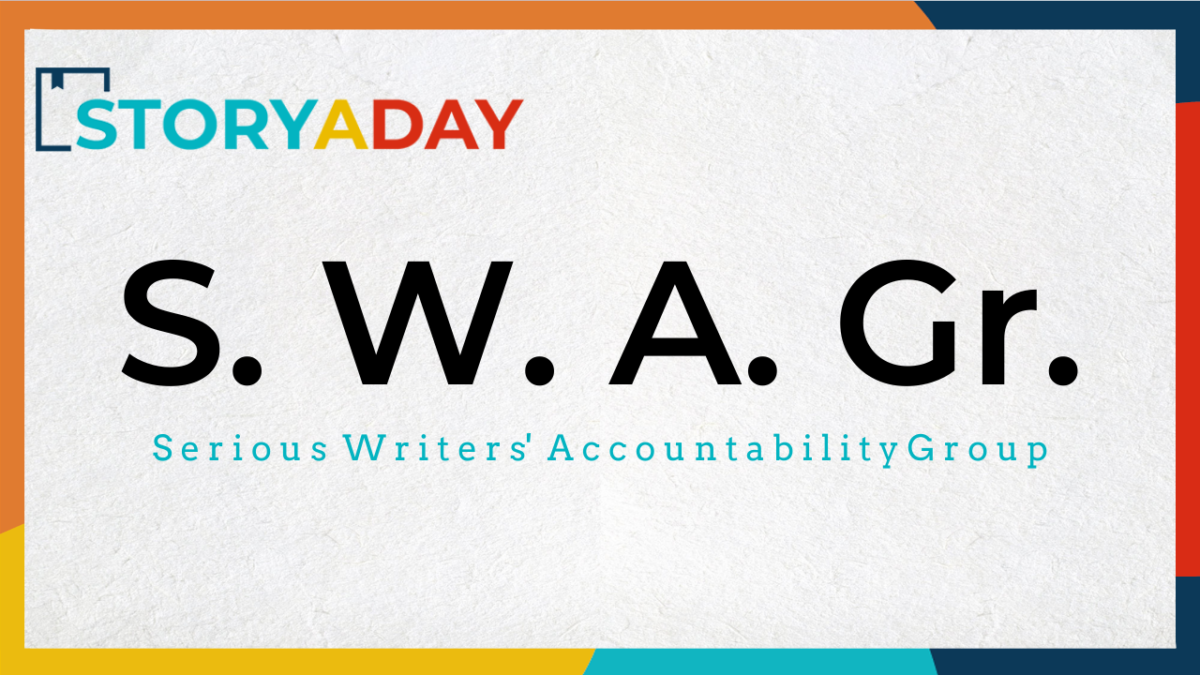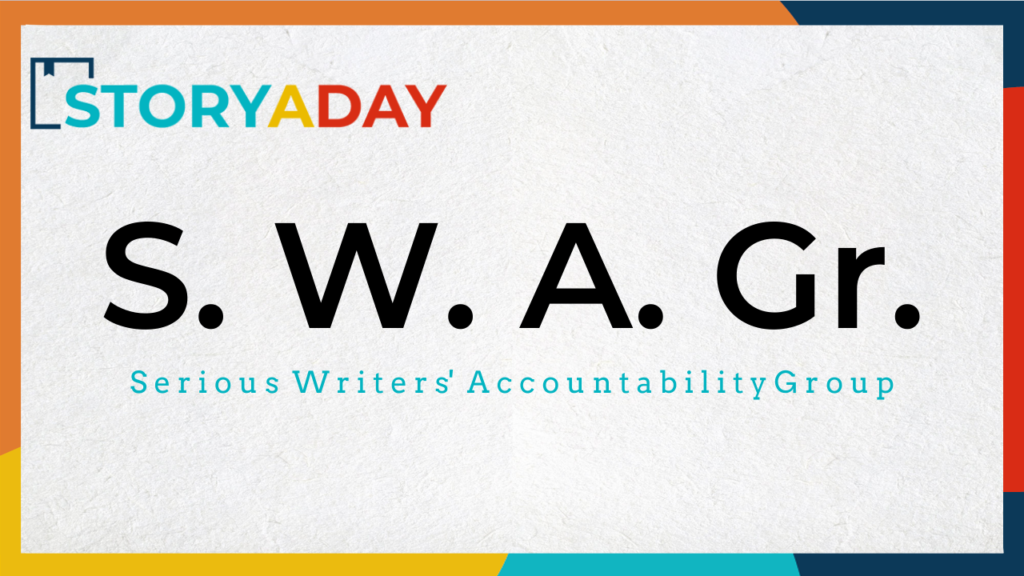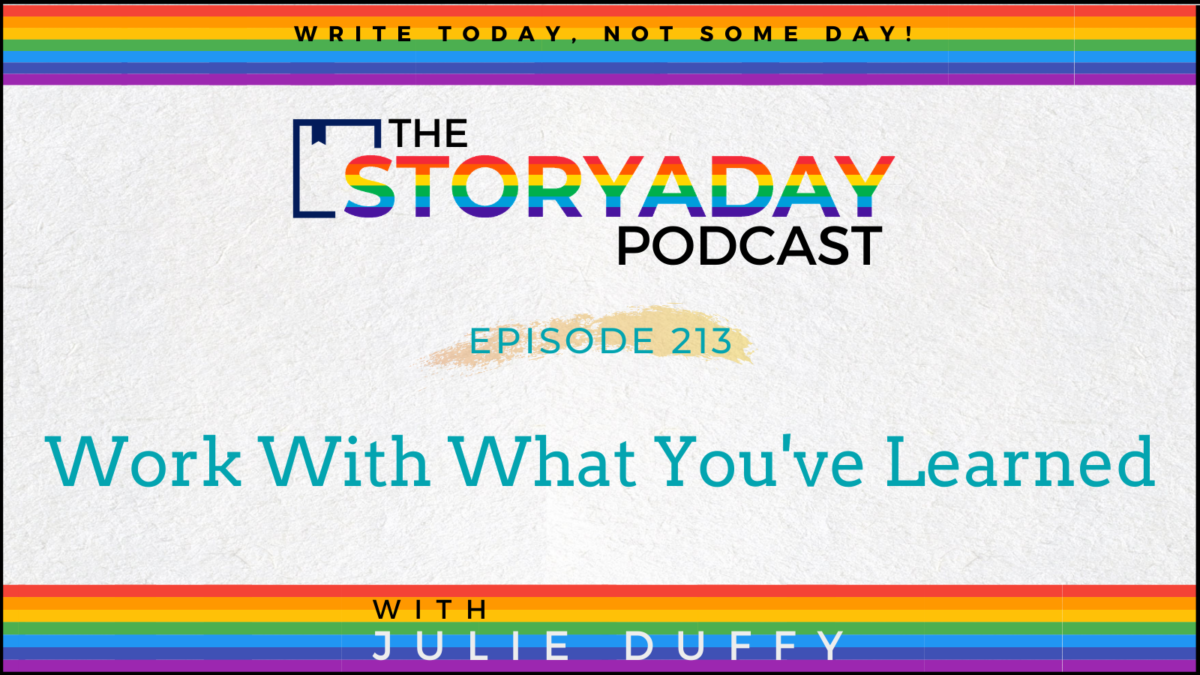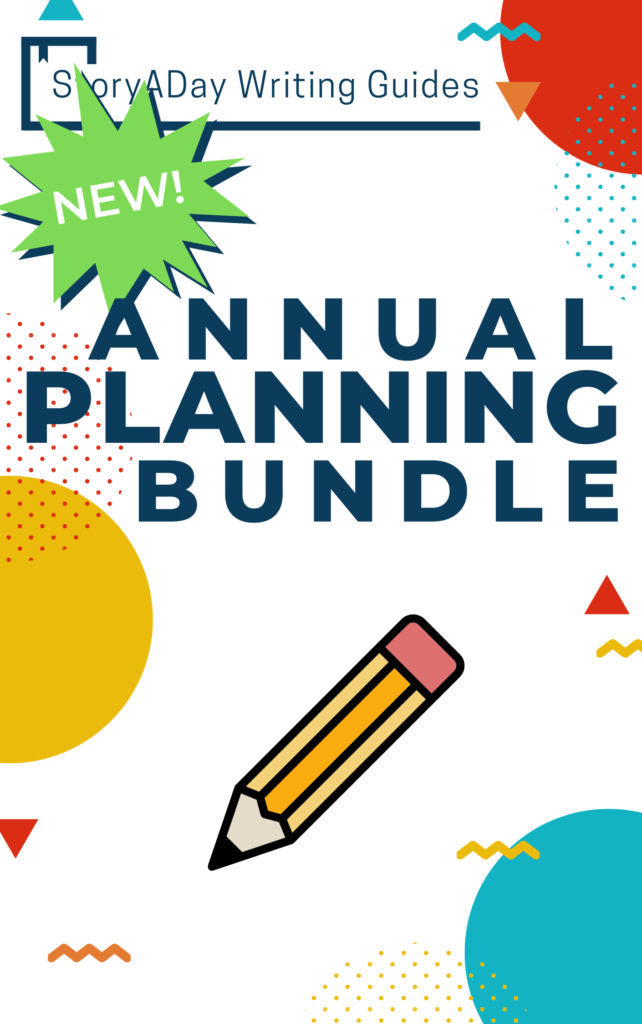This post is for people who are having trouble getting past the exciting beginning of their story and into (and through) the mushy middle. It works for novelists and short story writers.
Beyond The Beginning
Starting a story can be hard. But once you get started, the excitement carries you through some initial world-building, character-developement and scene setting. Then what?
Then, you get stuck, going around in circles, with your characters doing stuff, but not really going anywhere (either literally or plot-wise).
This is the perfect time to outline the next part of your story and start thinking about where you want to go from here. If you hate the thought of outlining, think of it as brainstorming. You do this in your head, if you’re a pantser (someone who writes by the seat of their pants), but sometimes it can be helpful to catch some of your ideas on paper.
Brainstorming (Not Outlining)
If you’re not a natural outliner, don’t go crazy with this. You know you’re going to write something that captures your interest and throw out the outline, or maybe a new character will do something unexpected and interesting. So don’t outline. Just brainstorm a few questions like:
- What is my character’s main desire?
- What is stopping her from getting to that desire?
- What does a ‘victory’ look like, in story terms and for my character?
- How can I make things worse for her?
- How can I make things even worse for her?
- Who does she need to ally with to help her reach her ‘victory’?
- Who/what is the antagonist and what does it/they want?
Even if you’re not a fan of outlining, keeping these questions (and the answers you discover) in mind as you write, will help keep your enthusiasm high for your story.
Revisit these questions every few writing sessions, or after every couple of scenes. Map out what needs to happen next to advance your character’s journey. Let future ideas dance around the back of your brain.
Then add another scene to your story.
More Resources
I’m posting these with the caveat that you should use as few of these as possible and ONLY when you are absolutely, dead stuck. Do not think these will help you if you aren’t actually writing. You must be writing your story for these resources to make any meaningful contribution.
Worksheets
Jill Williamson has a fabulous resource page full of everything from Novel Brainstorming Worksheet and one for short stories, to scene planning worksheets (one and two POVs), to character archetypes, genres & subgenres, even a worksheet for thinking about your characters’ hobbies!
Larry Brooks has a one-page checklist to help you plot out your novel. I find this one a little overwhelming, but if you take it step by step (i.e. write your way to a point when you’re stuck, then consult his list to see what you need to think about for the next quarter of your story) it might be more manageable. You can also find his Character Checklist here.
Books To Get You Unstuck
The Emotion Thesaurus: A Writer’s Guide To Character Expression by Angela Ackerman and Becca Puglisi is one of three books they’ve written (along with the Negative Trait Thesaurus and the Positive Trait Thesaurus) that can help you if your characters are feeling flat.
by Angela Ackerman and Becca Puglisi is one of three books they’ve written (along with the Negative Trait Thesaurus and the Positive Trait Thesaurus) that can help you if your characters are feeling flat.
Book Architecture: How to Plot and Outline Without Using a Formula by Stuart Horwitz. Can’t recommend this enough. It takes a fresh look at how to keep your plot interesting, by examining through-lines of themes and imagery and character traits rather than focusing on the old ‘Plot point I”, “Plot point II” “Dark Night Of The Soul” structure, which I find really unhelpful. This book, on the other hand, make small explosions go off in my brain. If you’re resistant to the idea of outlining, this might be the book to help you keep your story on track, nevertheless.
by Stuart Horwitz. Can’t recommend this enough. It takes a fresh look at how to keep your plot interesting, by examining through-lines of themes and imagery and character traits rather than focusing on the old ‘Plot point I”, “Plot point II” “Dark Night Of The Soul” structure, which I find really unhelpful. This book, on the other hand, make small explosions go off in my brain. If you’re resistant to the idea of outlining, this might be the book to help you keep your story on track, nevertheless.
Million Dollar Outlines (Million Dollar Writing Series) by Dave Farland. Unashamedly commercial in outlook, this book is stuffed with examples (mostly from the movie world) of what makes a compelling story, what readers are looking for (even down to age and gender breakdowns) and leaves you feeling totally convinced that anyone with a modicum of talent and the will to persist, can do this and maybe even make a living at it. Why not you? Hoo-ah! Also stuffed with practical advice on how to make YOUR story sing.
by Dave Farland. Unashamedly commercial in outlook, this book is stuffed with examples (mostly from the movie world) of what makes a compelling story, what readers are looking for (even down to age and gender breakdowns) and leaves you feeling totally convinced that anyone with a modicum of talent and the will to persist, can do this and maybe even make a living at it. Why not you? Hoo-ah! Also stuffed with practical advice on how to make YOUR story sing.
Write Your Novel From The Middle: A New Approach for Plotters, Pantsers and Everyone in Between by James Scott Bell. I found this very encouraging, particularly his insight into what the ‘midpoint’ of the novel really is, and the kind of moment you can write for your protagonist that crystallizes both the midpoint and what comes next.
by James Scott Bell. I found this very encouraging, particularly his insight into what the ‘midpoint’ of the novel really is, and the kind of moment you can write for your protagonist that crystallizes both the midpoint and what comes next.
Motivation for Creative People: How to Stay Creative While Gaining Money, Fame, and Reputation by Mark McGuinness. This book won’t tell you how to write a novel, but it will help you think about all the ways your poxy brain is holding you back, and how to make it work for you, instead. This is not your average ‘rah-rah, tell yourself you can do it’ book. McGuinness uses everyday examples and his background as a coach to show you how different types of motivation work on you. Grounded in academic studies, this is a chatty, accessible and inspiring look at how you can free yourself to create.
by Mark McGuinness. This book won’t tell you how to write a novel, but it will help you think about all the ways your poxy brain is holding you back, and how to make it work for you, instead. This is not your average ‘rah-rah, tell yourself you can do it’ book. McGuinness uses everyday examples and his background as a coach to show you how different types of motivation work on you. Grounded in academic studies, this is a chatty, accessible and inspiring look at how you can free yourself to create.
Other Resources
The Snowflake Method – From Randy Ingermanson, this is another wonderfully logical way to avoid the whole inverted-triangle, unhelpful story structure plotting that drives me crazy. It helps you focus on the key points of the story you want to tell (which you’ll discover while going through his exercises). It has the added bonus of creating your story summary and proto-marketing materials before you’ve even written it (which is the part most people say they hate even more than writing the thing in the first place).
This works even if you’ve started your novel. I was stuck at the half way point of a novel I’d been tinkering with for years, when I came across this method. Spent a few hours following Randy’s advice and pounded out the second half of the novel in a couple of weeks!











